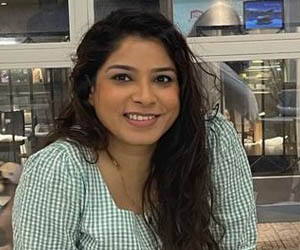The Vivekananda International Foundation on 26 June organised a book discussion on 'Kathmandu Chronicle: Reclaiming India-Nepal Relations'. The book is written by Amb KV Rajan and Atul K Thakur. Dr Arvind Gupta, Director VIF delivered the opening remarks followed by presentations by Amb KV Rajan and Atul Thakur. Lt Gen Rakesh Sharma, Dr Sanjeev Chopra and Abhigya Malla led the discussion which was followed by an intriguing questions and answers round. Amb KV Rajan has been India’s longest serving Ambassador to Nepal to date (1995 to 2000), and he has unmatched personal experience of Nepal and understanding of various aspects of India-Nepal Relations. Atul K. Thakur is a Policy Professional, Columnist and Writer with specialisation in the interface of economics and politics.
The discussion delved into the complex and enduring relationship between India and Nepal, characterised by deep cultural ties yet marked by frequent fluctuations. The authors elaborated on the book's three sections, i.e. into Amb. Rajan's nostalgic recollections, macroeconomic insights from Thakur, and perspectives on repurposing India-Nepal relations. It addressed enduring issues such as the 1950 Treaty of Peace and Friendship and the impact of China's influence.
Amb. Rajan, drawing on his extensive tenure as India's ambassador to Nepal, provided first hand insights into pivotal moments spanning from Nepal's democratic movements to its transition from monarchy to republic; into significant events like the Maoist insurgency, the Palace Massacre, and King Gyanendra's coup against democracy. Thakur's contributions offered macroeconomic perspectives and highlighted the evolving dynamics post-Nepal's transition to a democratic republic.
The discussion focussed on India's efforts to balance geopolitical interests while nurturing bilateral ties, navigating through challenges like distrust, intervention accusations, and anti-Indian sentiments in Nepal. The discussants critically examined the setbacks and complexities that have shaped the 'special relationship' between the two nations, often marked by mutual distrust and geopolitical challenges. Despite tensions, the discussion hoped for strengthened cooperation, particularly in economic and infrastructural development, as both nations acknowledge mutual geopolitical interests amidst regional complexities.
Overall, the discussion aimed to uncover historical nuances and address unanswered questions. It went beyond basic facts to provide a historical and personal perspective, offering insights into the challenges and opportunities for a stronger future. The discussion proposed strategies for future cooperation in areas such as water resources, trade, and tourism, advocating for a people-centred approach to development. Overall, the discussion focussed on understanding and reshaping bilateral relations in the post-COVID era, urging both nations to move beyond historical grievances and work towards mutual prosperity and stability.







Post new comment